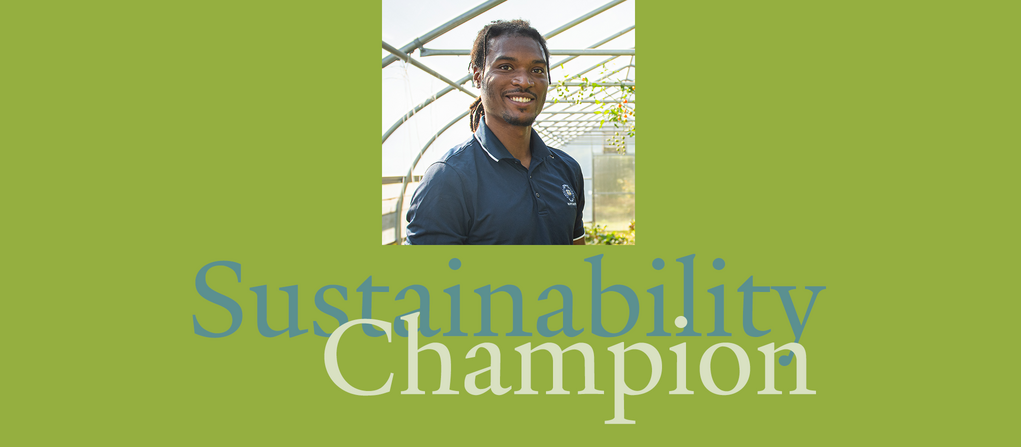
Past the entrance station at Yale’s West Campus, tucked beside an expansive parking lot, lies a lush oasis known as the West Campus Farm. There you will find Jordan Williams, the farm’s manager and as passionate an advocate for sustainable food systems as you’re likely to meet.
Williams works for Yale Hospitality and wears two hats: mornings are spent managing the West Campus Café, where he oversees purchasing and invoicing, creates menus, and helps out on the lunch line. Each afternoon, Williams dons his farm manager hat and attends to the myriad tasks of running the quarter-acre garden plot.
When he became farm manager in 2022, the plot was overgrown from two years of pandemic-induced dormancy. Williams immediately set about repairing raised-bed gardens, removing mugwort and other invasive plants, installing chicken-wire fencing to keep rabbits out, and bringing order to a greenhouse that “looked like a jungle.”
Today, the farm is a tidy (and organic) community garden with 44 raised beds growing spinach, okra, collard, cabbage, tomatoes, sweet potatoes, squash, and a variety of pollinator plants. It is also a gathering space for the many Yale student and staff volunteers who have helped to steward the property over many years. Under a pilot program initiated by Williams, any Yale community member can now reserve a garden bed for a season, though there is currently a wait list.
Williams’ background in permaculture—a term that combines ‘permanent’ and ‘agriculture’ and embraces a more sustainable way to farm. He comes from a long line of subsistence farmers and has traced his lineage to Guinea-Bissau, a place Williams has traveled to multiple times to learn how the West African nation’s people live in greater harmony with the environment.
He has put some of those practices into effect at West Campus Farm, carefully planning crop rotations to preserve soil nutrients and diversifying what the gardens grow.
“Farming is something my family has used to sustain themselves for many generations,” he says. “I look at this as continuing that work, stewarding the land in a way that feeds myself, feeds others, and also feeds the land. I take pride in that relationship.”
The West Campus Farm doesn’t produce enough food to supply the café. Rather Williams has focused on using the farm for education and food literacy, with the café acting as a sort of laboratory. In July, for instance, Williams organized a hands-on event in the café kitchen where a Yale Hospitality chef led participants in making their own blueberry jam using berries harvested from the farm. Each participant got bring home a jar of jam they made themselves.
“That’s the gap I’m trying to bridge—the worlds of agriculture and cuisine,” Williams says. “If you’re learning about a food, and maybe gaining a skill for how you can make that food yourself, that’s incredibly valuable and empowering.”
Learn more about the West Campus Farm.
Each month, Yale Sustainability features a ‘Sustainability Champion of the Month’—a student, staff, or faculty member who is leading the charge toward a more sustainable campus. If you know a sustainability champion at Yale, email sustainability@yale.edu and tell us about them.